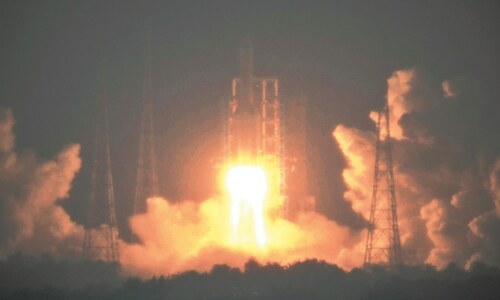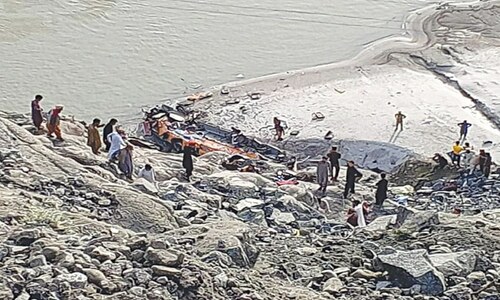ISLAMABAD, Sept 22: The Asian Development Bank (ADB) on Thursday said the delivery of gas to India and Pakistan from Turkmensitan’s Daulatabad field might not be possible through $3.3 billion trans-Afghanistan pipeline, owing to lower than expected gas production.
However, it said the two countries would require three pipeline projects for gas import to meet their rising energy demand. The ADB has also floated the idea of gas import from Oman besides Iran and Qatar and expressed optimism about $7 billion Iran-Pakistan-India (IPI) project.
The bank has been brokering the 1,700-km pipeline project since 2002, promoting it as a win-win example of regional cooperation— a pioneering effort to link gas-rich Central Asia with energy-deficient South Asia through Afghanistan.
The project, according to ADB’s original plan, was to bring clean fuel at competitive costs to India and Pakistan, much-needed transit fees to Afghanistan, and new markets for Turkmenistan.
A senior ADB energy specialist, Dan Millison, said: “Turkmenistan’s Daulatabad gas field has gross reserves of 1.4 trillion cubic meters of gas, but production forecasts are lower than expected, causing analysts to doubt that it can meet the proposed target of piping 30 billion cubic meters (BCM) of gas a year to South Asia”.
“The reserves information shows that Turkmenistan could supply enough gas for the first few years but then production is predicted to decline instead of increasing,” said Mr Millison.
He said Turkmenistan would need to find gas from other fields to meet pipeline design targets.
However, future demand for natural gas in South Asia is projected to be strong enough to require gas to be piped from both Turkmenistan and Iran, he said.
He said the reserves information released from Turkmenistan showed lower-than-expected gas deliverability for a proposed $3.3 billion pipeline project to carry gas from Turkmenistan via Afghanistan to India and Pakistan.
Meanwhile, a $7 billion scheme to pipe natural gas from offshore Iran to Pakistan and India is gaining momentum. This 2,700-km pipeline would cost more than double the Turkmen scheme, but leaves out Afghanistan, where security concerns remain, he said.
“However, with long term gas demand from India and Pakistan estimated at 50 BCM a year, there is a need for more than one pipeline,” said Mr Millison.
India already imports gas and demand will soar in the next decade. Pakistan, with its own reserves declining, is expected to begin importing gas after late 2008. In fact, projected demand in South Asia is so strong that there might be a need for a third pipeline from Qatar or Oman, he noted.
With the new gas reserves data in hand, as well as a draft security analysis report, the next step is for the project’s steering committee to meet and discuss inviting an international consortium of investors to build the pipeline.
Turkmenistan is one of the world’s largest gas exporters. However, although its 4.5 million people receive free gas, electricity and water, incomes are among the lowest in Central Asia and health and education services are declining.














































Dear visitor, the comments section is undergoing an overhaul and will return soon.